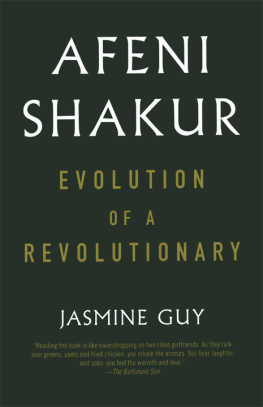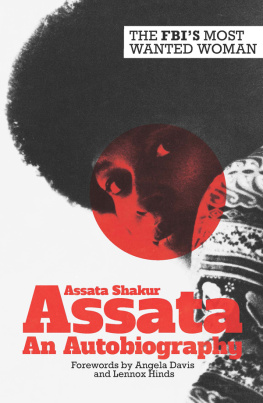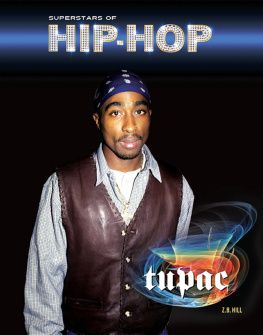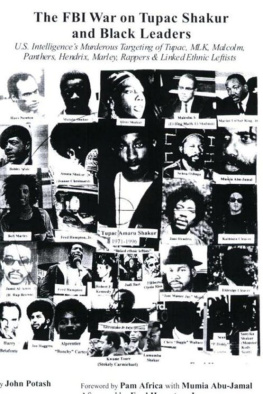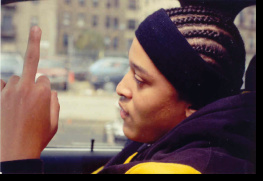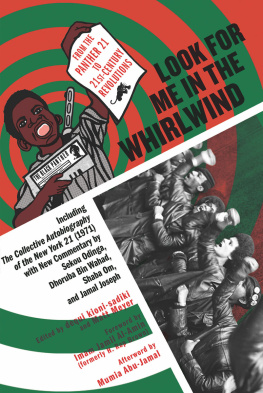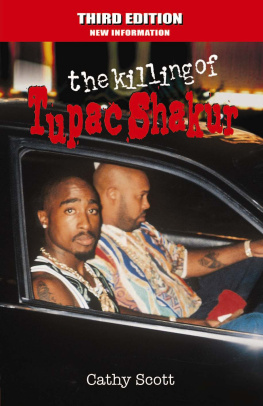ATRIA BOOKS
1230 Avenue of the Americas
New York, NY 10020
Copyright 2004 by Amaru Entertainment, Inc.
All rights reserved, including the right to reproduce
this book or portions thereof in any form whatsoever.
For information address Atria Books, 1230 Avenue
of the Americas, New York, NY 10020
ISBN: 0-7434-7053-2
First Atria Books trade paperback edition February 2005
10 9 8 7 6 5 4 3 2
ATRIA BOOKS is a trademark of Simon & Schuster, Inc.
Manufactured in the United States of America
For information regarding special discounts for bulk purchases, please contact Simon & Schuster Special Sales at 1-800-456-6798 or business@simonandschuster.com
This book is dedicated to Tupac Amaru Shakur
ACKNOWLEDGMENTS
My Guy Family:
One of my greatest gifts is that I was born into this tribe. My mother, Jaye Rudolph, who taught me how to write, fed my talent, and grounded my work; my father, William V. Guy who did not lie to me and gave clear, objective criticism; and my sister, Monica Guy, whose journalistic background and creative brilliance compensated for my lacking.
My Duckette Family:
Thank you Mitch and Imani for allowing me time away from you to do this book; Mama Lorine, Tracie, and JaShalya for loving me as a daughter, a sister, and an aunt.
My Circle:
Gi Gi, Monica, Tambre, Kyme, Gina, Diane, and Kari.
My Friends:
Fatima, Jada, Adriana, and Susan.
My Publisher/Editor:
Judith Curr and Luke Dempsey.
My Fortress:
Karolyn Ali, who believed from the beginning that this would be done and saw to it that it was.
My Shakur Sisters:
Sekyiwa, Glo, Jamala, and, of course, Afeni.
Preface
T he purpose of a preface has always eluded me. I do not read introductions, prefaces, or any words that precipitate the author's. I feel the writer's words are the first and last I should read. I've been asked to write a preface, a beginning to the beginning, a prebeginning as it were. So, I write this reluctantly but dutifully, in case I may be wrong about what you may understand or not understand in this book.
Let me begin by saying that my life has been empowered by the strength of black women. I am not solely empowered by black women or black women, but in reality I listen most immediately to their struggle. It is their message that helps me beat down my personal demons. African-American women are vulnerable. They hurt. They fear. Yet, they spit in the face of degradation, racism, and poverty. They fight for freedom in their own personal ways. They create babies and they nurture them. They make love to their men and they love them.
They laugh and sing and dance. They are not crybabies. So, it is no wonder that once I knew the story of Afeni Shakur, I wanted her story told.
Over time, over heartache, over joy, over loss, over birth, and over death, our friendship was born. With Afeni I've experienced a decade of lessons, love, loyalty, and truth. With Afeni I have a decade of friendship and a decade of learning a friend.
In this book I share the personal conversations Afeni and I have had over the course of our friendship so that you might get to know her as I know her...intimately.
Though she is complex and fascinating, make no mistake: The purpose of this book is not to titillate. As Afeni told me pointedly and firmly, she is not interested in being fascinating.
"I want to reach people who have big problems," she told me, "People that look like they won't get through. I want to talk about how you get through garbage... just putting one foot in front of the other. I want to talk about how you can survive without destroying yourself in the process and that when you do survive there's something left...some spirit left for the next day."
Afeni looked at me hard at that moment and asked me one good time, "You think we could do that?"
I smiled when I said, "Yes. Afeni, with your story we can do that...for somebody."
JASMINE GUY
ONE
The Stuff
"It's important to know the stuff you came from."
AFENI SHAKUR
I travel east on I-20 as the sun sets behind me, passing exits I no longer recognize. Old fears of being lost on the highway in Stone Mountain, Georgia, resurface, even though I'm told it's no longer the cracker-land of my childhood. Black folk live out here now, far beyond the parameters of my youth. Today, Atlanta stretches past Cumberland Mall, Six Flags, and even Stone Mountain. Things have changed and I missed the transition. I feel strangely stuck right in the middle of my life. There was a time when my life was all ahead of me. Today, there is a big chunk behind me and maybe just as much in front. All this means is, I still have time to change my attitudes and sensibilities, but I am just less inclined to do so.
Let's say I'm just a little less flexible. Like an uncle of mine who still says "colored" instead of "black." He just never got used to saying "Black" or "Negro," and didn't understand what difference it made or why he had to make a change. The change was irrelevant to him... "African-American" was out of the question.
So, the irony of the famed revolutionary and impassioned mother of a rappersuperstar Tupac Shakurnow residing in suburban, once-Klan-country Georgia is not lost on me. In fact, I have learned to expect the unexpected from Afeni Shakur. Not because she means to be complex or contradictory, but because she just is. That is her truth, and it's a truth that fascinates me. I've grown to love my friend Afeni.
As I drive, I think back to December 1, 1994, the day I met Afeni. At the time, I was writing a screenplay about a fictitious young woman in the '60s who was raising her daughter while still living with her own mother. The piece was, or still is if I ever get finished writing it, a three-generation piece about Black women.
The young woman in the middle is a fictitious, composite character of Angela Davis and Afeni Shakur. My plan was to meet Afeni and hopefully have her help me develop this particular character and perhaps give me her insights on the other two.
The way I met her was not how I'd imagined though. In fact, I was thrust into a tumultuous family trauma. Her son, my friend Tupac, had been brutally shot five times in the foyer of a New York recording studio on a Sunday night; had left Bellevue Hospital on a Monday, and was in court on a Tuesday morning for a sexual assault hearing. So, on December 1, 1994, I was early for the court hearing and waiting in a vast hallway with Jada Pinkett, a close friend of mine and an even closer friend to Tupac Shakur. We were waiting to get a glimpse of Tupac on his way into court and let him know we were near and there for him. At that time, I didn't even know the charges or the circumstances of the trial. I just knew that Tupac was shot the night before in the entrance of the recording studio, and I needed to be there to support my friendsJada and Tupac.
The crazy events of the last two days had me reeling, but I tried to consciously stay in the moment, It is Tuesday morning. Tuesday morning. You're in New York. You're at the courthouse. I remember talking myself into the present moment of that day, but I kept slipping out.

